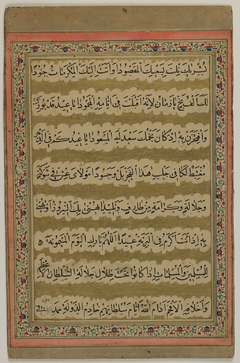Even as our Jewish brethren remember Tisha B'Av, our Muslim brothers and sisters are remembering the feast of Eid Al-Adha ("Festival of the Sacrifice"). While Tisha B'Av recalls and mourns destruction, Eid Al-Adha recalls and celebrates sacrifice. It tells us that at the heart of persuaded belief lies the notion of trust.
For when we trust in an unseen presence, we are willing to sacrifice, to commit ourselves unreservedly to it. Many of us are familiar with the story of Abraham and Issac ("one who laughs'). Although Eid Al-Adha renders it as the story of Abraham and Ishmael ("God hears"), the plot is the same. God asks Abraham to trust him with the life of his son, to be willing to sacrifice his son to God.

(While we moderns may rightly recoil at this thought and Abraham's apparent willingness to accede to it, we should remind ourselves that, in the world that Abraham occupied, child sacrifice was not uncommon. Not that this makes such things right, just that, given his cultural sensibilities, Abraham had no ready reason to doubt that this was what God was telling him to do. For those interested in learning more about Abraham and God's intentions, I recommend reading the reflections of Soren Kierkegaard, and David Gelenter on them. Also, read the thoughts of Joseph Soloveitchik.)
This aside, what Eid Al-Adha can tell us is that at the heart of spirituality must be a willingness to trust. To trust the one to whom we direct our heart. To believe that this one is always good. To be convinced that, always and always, this one will be with us and on our side.
No comments:
Post a Comment